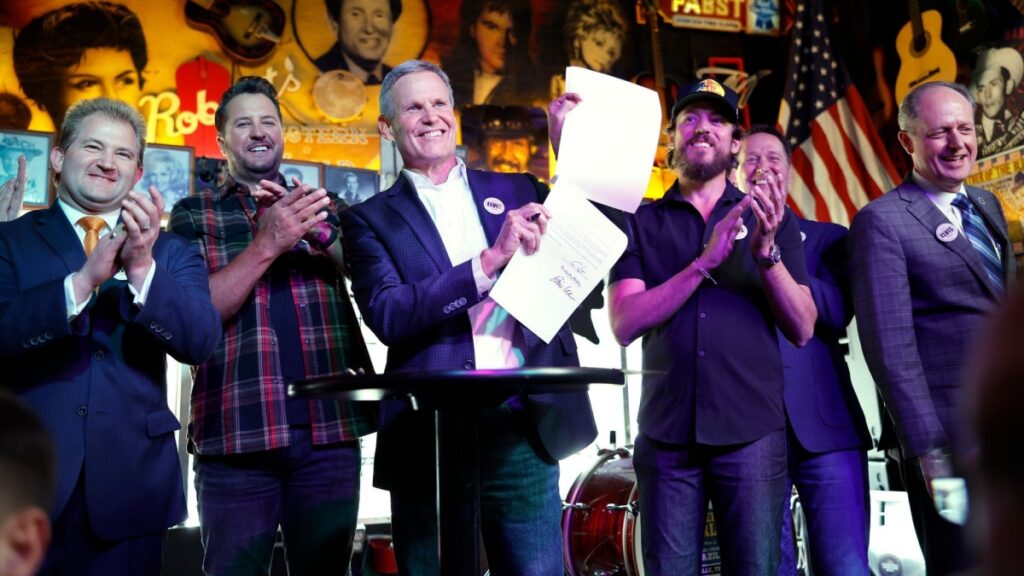On Thursday, Tennessee Governor Bill Lee signed the United States’ very first AI music law: the ELVIS Act, which amends pre-existing legislation to protect the voices of artists as property rights.
Signed at a ceremony hosted at a honky tonk in Nashville’s famous Broadway district, the ELVIS Act was supported by the initiative, The Human Artistry Campaign, and has a number of prominent supporters, including country stars Luke Bryan and Chris Janson (who were both at the signing), Recording Academy CEO Harvey Mason Jr., a bipartisan coalition of Tennessee lawmakers, and more.
Amending the state’s pre-existing Personal Rights Protection Act of 1984, the law — formally titled the Ensuring Likeness, Voice, and Image Security Act of 2024 — basically upgrades an individual’s voice to a property right, like their name, photograph, and likeness. Those who knowingly use an individual’s voice “for purposes of advertising products, merchandise, goods, or services, or for purposes of fundraising, solicitation of donations, purchases of products, merchandise, goods, or services” are liable to a civil action.
The language of the ELVIS Act also clarifies situations in which the unauthorized use of an individual’s voice is, in fact, permitted, which include references “in connection with any news, public affairs, or sports broadcast,” as well as instances of “comment, criticism, scholarship, satire, or parody.”
Additionally, “fleeting or incidental” usage of a voice is allowed, as are representations “of the individual as the individual’s self in an audiovisual work,” unless the audiovisual work creates “the false impression that the work is an authentic recording in which the individual participated.”
In a statement, Mason — who, in the past, has notably commented on AI music-making — said, “The Recording Academy celebrates the passage of the ELVIS Act as a groundbreaking achievement in the effort to protect human creators in the age of AI… Today is just the beginning — as AI continues to develop, the Recording Academy and our members will continue to support meaningful legislation across the country that uplifts music people and human creativity.”
For their part, the Tennesseans present at Thursday’s signing took great pride in the achievement. “From Beale Street to Broadway, to Bristol and beyond, Tennessee is known for our rich artistic heritage that tells the story of our great state,” Gov. Lee said, before thanking the state’s General Assembly for “creating legal protection for our best-in-class artists and songwriters.” In his remarks, Bryan called the law “an amazing precedent to set,” and thanked the state for protecting “what [artists] work so hard for.”

